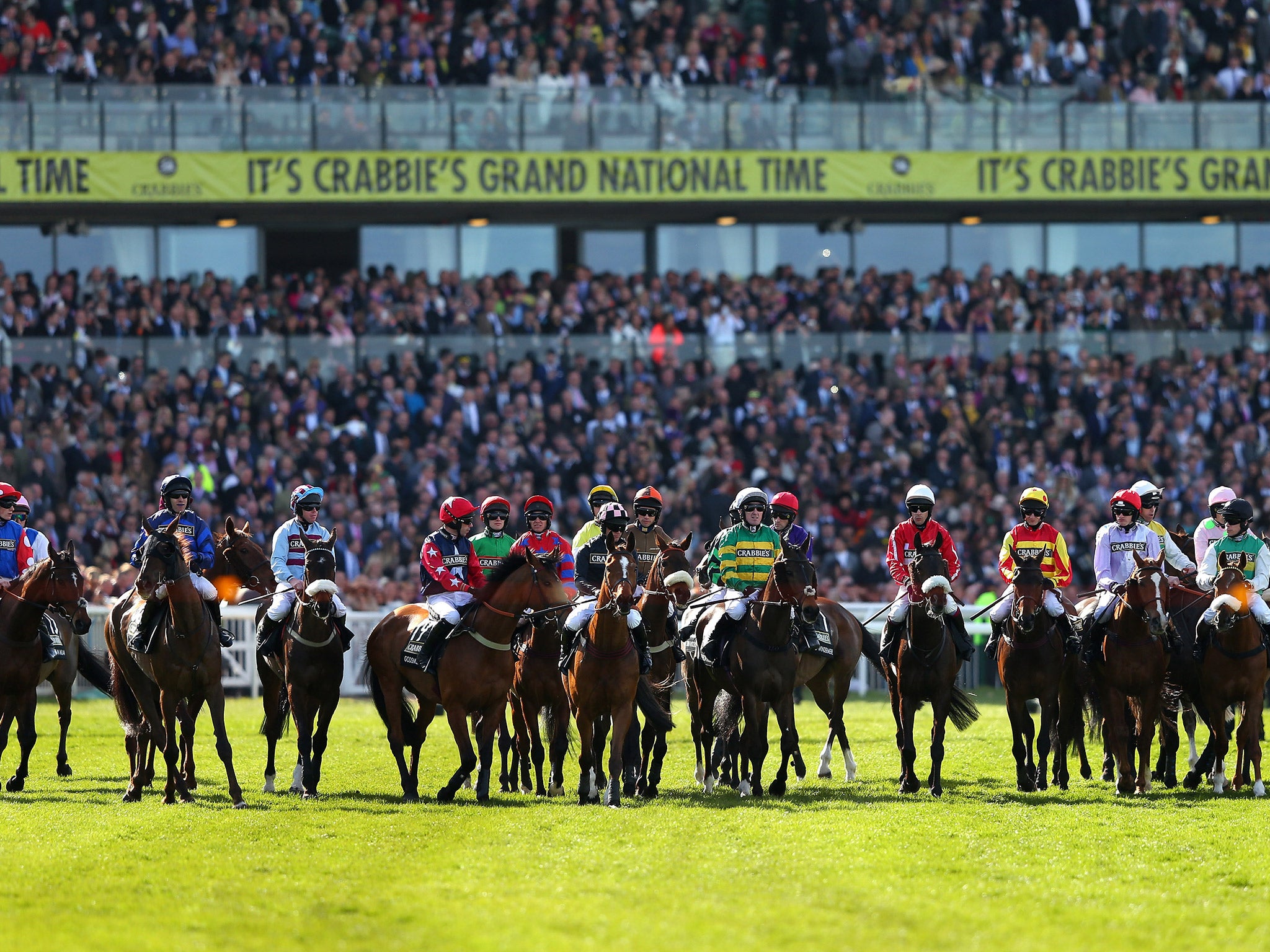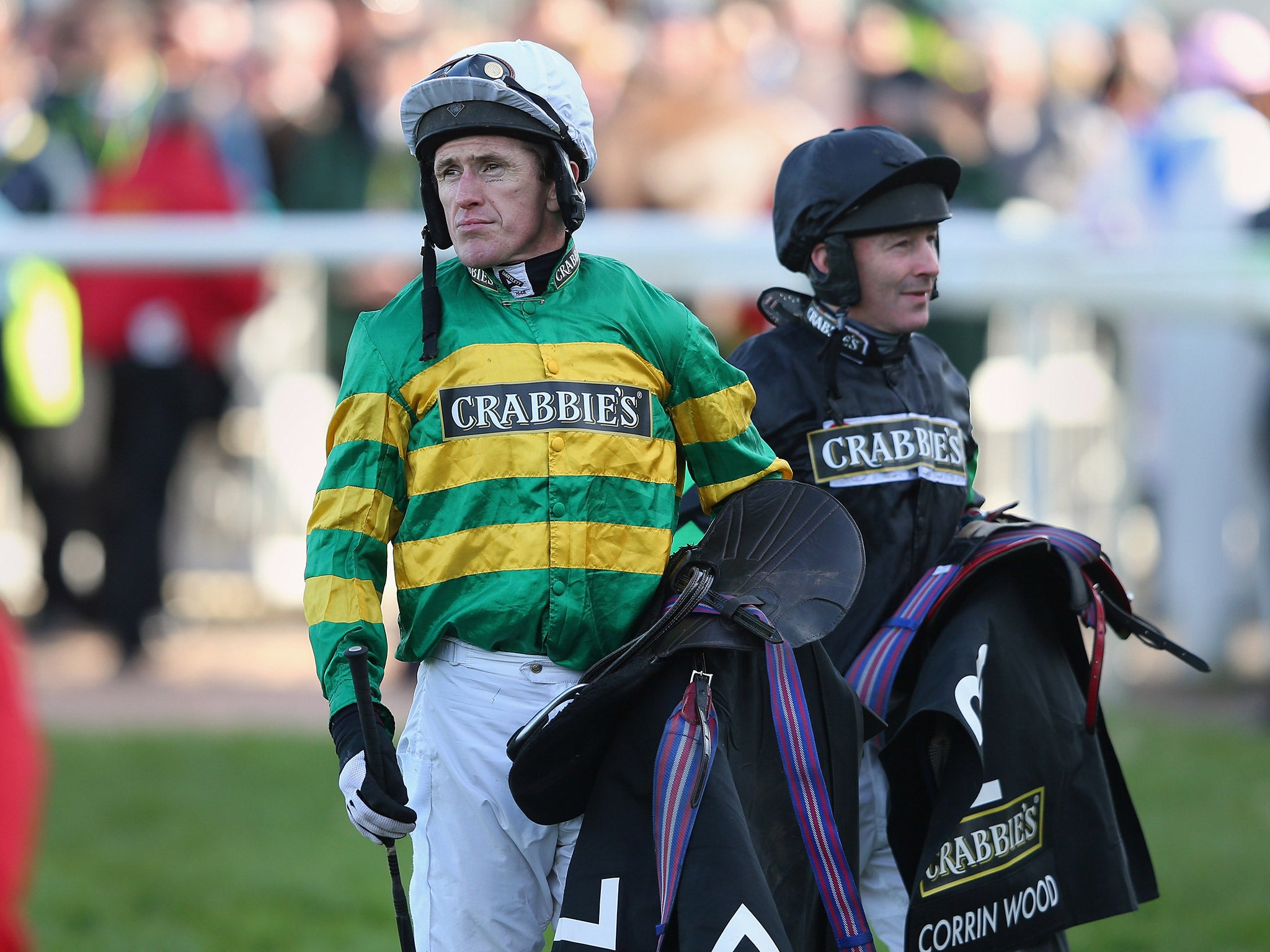Grand National 2016: AP McCoy says Aintree race retains unpredictability despite horse welfare taking priority
Retired McCoy admits 'horse welfare is very important' but believes the National can still throw up a lottery winner

Your support helps us to tell the story
From reproductive rights to climate change to Big Tech, The Independent is on the ground when the story is developing. Whether it's investigating the financials of Elon Musk's pro-Trump PAC or producing our latest documentary, 'The A Word', which shines a light on the American women fighting for reproductive rights, we know how important it is to parse out the facts from the messaging.
At such a critical moment in US history, we need reporters on the ground. Your donation allows us to keep sending journalists to speak to both sides of the story.
The Independent is trusted by Americans across the entire political spectrum. And unlike many other quality news outlets, we choose not to lock Americans out of our reporting and analysis with paywalls. We believe quality journalism should be available to everyone, paid for by those who can afford it.
Your support makes all the difference.Sir Anthony McCoy has defended the Grand National saying that it still has an air of unparalleled excitement about it that makes the world’s most famous race the one to watch - and win.
“It’s not the challenge that it was,” McCoy said, “but it still has an unpredictability about it as winners like Auroras Encore [in 2013] at big prices [66-1] prove. As long as you continue to get the element of surprise at the National, it’ll be fine. But, of course, horse welfare is very important. The new fences are much more horse-friendly than the old ones. But as long as you have the odd lottery-type winner, it’ll be fine.”
Each fence used to be made from a wooden frame and covered with green spruce. However, a radical change for the 2013 race saw that frame replaced by a softer, more forgiving material known as plastic birch.

It was very different back in the day as Oliver Sherwood, trainer of last year’s winner Many Clouds and jockey back in the late Seventies and early Eighties, admitted. “Going to the first fence it was the only time I was frightened on a horse,” he said. “Not so much the fences. Although they were very big in my era. It was the numbers [of horses]. It’s a feeling you never, ever forget.”
“It’s important the challenge stays or it won’t be the race it is,” Sherwood added. “That’s the reason people watch it, because it’s different to other races. I realised after winning it last year how worldwide the race is. I had to do interviews with media outlets from everywhere - Japan to New Zealand to Australia - and when I said - with respect to the Grand National - that I had always wanted to win the Gold Cup…they were: ‘What’s that?’ Everybody has heard about the National and that says it all.
“The fences are safer now that they've taken that hard birch out of them. But I wouldn't want to change it anymore. I think we've gone as far as we should go.”
McCoy agrees: “Otherwise it becomes the same as any other horse race,” he says. “Six hundred million people watch it. There will always be people who say they want this to change or that to change in any sport but if that many people watch it…”
Join our commenting forum
Join thought-provoking conversations, follow other Independent readers and see their replies
Comments